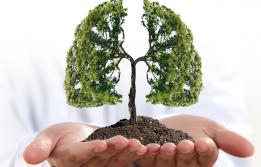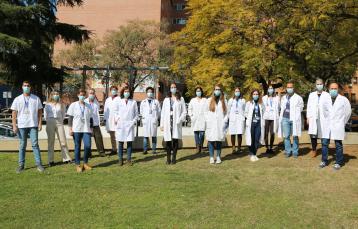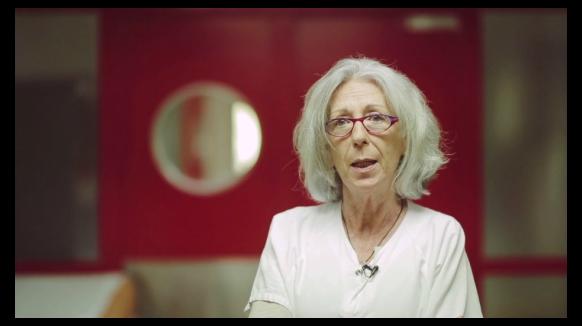Thoracic Surgery
Description
The cornerstone of Thoracic Surgery is the Thoracic Surgery Department, with participation from General Surgery, Radiology, Respiratory Medicine, Cardiac Surgery, Vascular Surgery and Intensive Care Medicine.
Resident doctors can carry out pioneering techniques such as video-assisted thoracoscopic surgery for pulmonary, pleural, and mediastinal pathologies; and other procedures such as thoracic sympathectomy treatment for hyperhidrosis palmaris and thoracic wall and diaphragm surgery. Surgery to treat pleural disorders and lung transplants in adults and children is also carried out. Residents also take part in oncology treatment through tracheal reconstruction and lung cancer surgery.
In addition, resident doctors must familiarise themselves with diagnostic imaging; be it in pneumology, radiology, ultrasound, or direct or video-assisted endoscopy.
During their rotation in the Intensive Care Unit, specialists have the chance to apply their knowledge of pulmonary function and physiopathology of chronic and acute respiratory failure for the proper management of patients with critical respiratory disorders.
The Thoracic Surgery Department has carried out multiple experimental surgery studies as part of the General Surgery research group (trachea transplant, new therapies using aerostatic products, ex vivo lung perfusion, etc.) and is currently researching lung transplants using animal models.
We encourage residents to take part in sessions, seminars, committees and the different courses and conferences to complement their training in organ transplant and donation, advances in respiratory medicine and pleural disorders. They are also urged to take part in scientific events held by the Catalan Thoracic Surgery Society, to keep up to date with scientific methodology and research.
Accredited places: 1
Download the unit training programme
Why specialise at Vall d’Hebron?
- Because we are a leading centre for lung cancertreatment, due to the fact that we treat this disease using a multidisciplinary approach.
- Because in 1990 we were the first centre in Spain to perform a successful lung transplant, and we are currently a national leader in transplants in adults and children , and the only centre carrying out lung transplants in infants.
- Because we carry out the highest number of lung transplants of any hospital in Spain.
- Because our programme started in 1973, meaning we have extensive experience in training specialists.
- Because training the specialists of the future is a large part of the work our team does, fostering residents’ surgical education, but also training them in complete preoperative and postoperative patient care, conducting rounds, and the multidisciplinary committees and many training sessions held.
- Because residents are part of the lung transplant team during their entire residency. As well as performing donor extractions and implantation into recipients, they also carry out preoperative assessments and manage transplant patients' postoperative care.
- Because we encourage specialists in training to take up a temporary stay in an internationally renowned centre elsewhere, to become familiar with the most innovative techniques in the specialisation and to develop their doctoral thesis and obtain their Doctor of Medicine.
- Because when you complete your training, you will be equipped to work independently as a healthcare practitioner.













